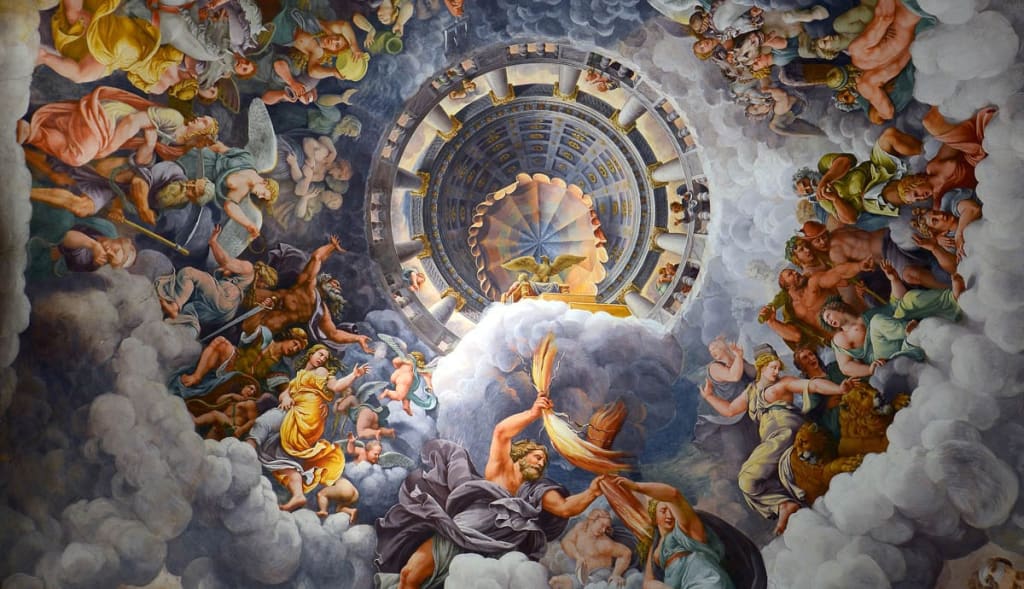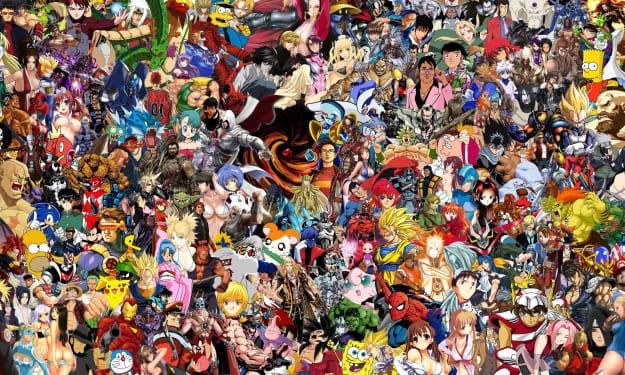
Greek mythology refers to the collection of myths, legends, and stories that originated in ancient Greece. It encompasses the beliefs and narratives of the ancient Greeks, who used mythology to explain natural phenomena, understand the world around them, and explore the nature of gods, heroes, and humans.
Greek mythology features a pantheon of gods and goddesses, with Zeus being the king of the gods. Other prominent deities include Hera, Poseidon, Hades, Athena, Apollo, Artemis, Aphrodite, Hermes, and many more. These gods were believed to possess human-like qualities, emotions, and flaws, and they often intervened in the affairs of mortals.
The myths often revolve around the interactions between gods, humans, and other mythical creatures such as nymphs, satyrs, centaurs, and monsters like the Minotaur and Medusa. The myths explain the origins of the world, the creation of mankind, the lives and adventures of heroes such as Heracles (Hercules), Perseus, Odysseus, and Theseus, as well as various tales of love, betrayal, and tragedy.
Greek mythology had a significant impact on ancient Greek culture, influencing art, literature, philosophy, and religious practices. The myths were passed down through generations orally and later recorded in written form by famous authors like Homer, Hesiod, and Ovid.
Today, Greek mythology continues to be an enduring part of Western culture, inspiring countless works of art, literature, and entertainment. It has also contributed numerous words and phrases to the English language, as well as serving as a rich source of inspiration for storytelling and exploration of human nature.
The exact origins of Greek mythology are difficult to pinpoint, as they evolved over a long period of time and were influenced by various cultural and historical factors. However, the earliest forms of Greek mythology can be traced back to the Mycenaean civilization, which thrived in Greece from approximately 1600 BCE to 1100 BCE.
The Mycenaean Greeks incorporated elements of an older, pre-Greek civilization known as the Minoans, who inhabited the island of Crete. The Minoan culture had its own mythological traditions, which were assimilated and adapted by the Mycenaeans.
The myths and legends of the Mycenaeans were largely preserved through oral tradition, with stories being passed down from one generation to another. These early myths were likely focused on local gods and heroes, reflecting the regional diversity of ancient Greece.
The Homeric epics, the Iliad and the Odyssey, composed by the poet Homer around the 8th century BCE, played a crucial role in shaping and popularizing Greek mythology. These epic poems depicted the Trojan War and the adventures of the hero Odysseus, incorporating a wide range of mythological characters and stories.
From the 8th century BCE onward, Greek mythology continued to evolve and expand through the works of various poets, playwrights, and philosophers. It became an integral part of Greek religious practices and cultural identity, influencing all aspects of ancient Greek society.

Greek mythology continues to be appreciated and valued in contemporary times. It has left an indelible mark on Western culture and serves as a rich source of inspiration for various forms of art, literature, and entertainment. Here are a few reasons why Greek mythology remains relevant and popular today:
Literary and Artistic Influence: Greek mythology has greatly influenced literature and art throughout history. Many renowned works of literature, including William Shakespeare's plays, John Milton's "Paradise Lost," and countless poems, novels, and modern retellings draw inspiration from Greek myths. Additionally, Greek mythology has inspired numerous works of art, sculptures, and paintings.
Cultural References: Greek mythology has embedded itself in our collective consciousness and language. Many words, phrases, and concepts in the English language have their origins in Greek myths. For example, the term "Achilles' heel" refers to a vulnerable spot, derived from the myth of Achilles, the Greek hero.
Archetypal Characters and Themes: Greek mythology offers a rich tapestry of archetypal characters and universal themes that continue to resonate with contemporary audiences. The hero's journey, the struggle between gods and mortals, love and desire, hubris and nemesis, and the eternal quest for knowledge are all themes that are explored in Greek myths.
4. Entertainment and Pop Culture: Greek mythology has a strong presence in popular culture, including films, television series, video games, and comic books. Characters and stories from Greek mythology are frequently reimagined and adapted in modern storytelling, captivating audiences of all ages.
5. Understanding Human Nature: Greek mythology provides insights into the complexities of human nature, exploring the virtues, flaws, and motivations of both gods and mortals. The myths raise philosophical questions about fate, free will, morality, and the human condition, encouraging contemplation and introspection.
While Greek mythology reflects the beliefs and cultural context of the ancient Greeks, its enduring appeal lies in its timeless themes and the universal truths it explores. It continues to captivate and engage people, offering a window into the human experience and serving as a source of inspiration and creativity.
About the Creator
Dan IsEnjoyingLife
Chill, Relax and Enjoy Life is my Priority.
Please Subscribe for more Chilling, Relaxing and Enjoying Article, Thank You.






Comments
There are no comments for this story
Be the first to respond and start the conversation.